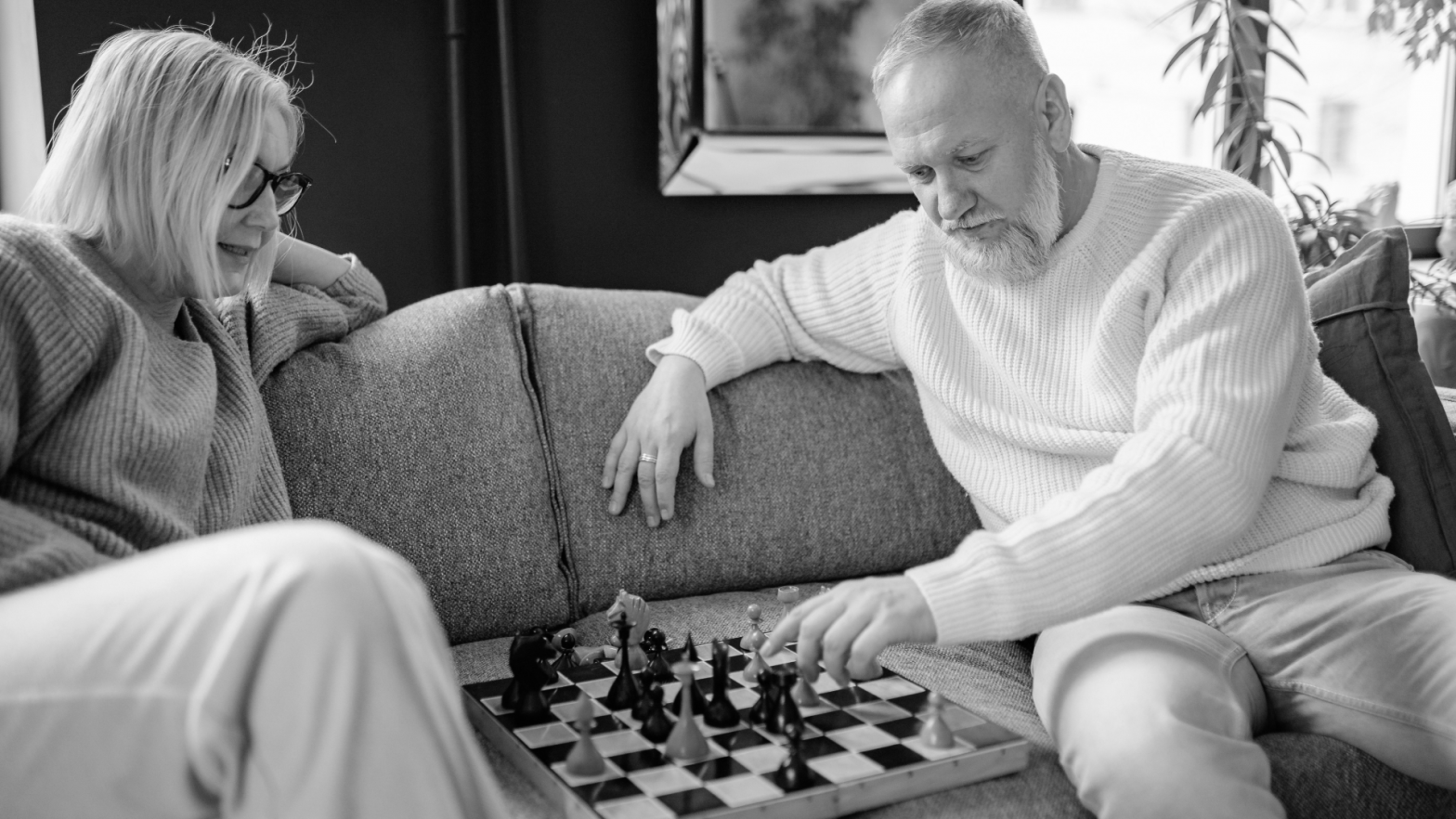Konjunctiv II is the form of the German verb that you use to form the suppositional mode. As in English, you use it to express:
- hypothetical situations,
- speculations about the present or the past,
- dreams and wishes,
- suggestions and polite requests.
Depending on whether you are referring to the present or the past, Konjunktiv II is formed in different ways.
Konjunktiv II in relation to the present
| German | English |
|---|---|
| Wenn ich mehr Zeit hätte, würde ich Deutsch lernen. | If I had more time, I would learn German. |
To begin with, you should know that there are 3 verbs (in addition to modal verbs) that have their own Konjunktiv II form. These are the verbs we use most often, namely sein (to be), haben (to have), and werden (to become).
To create the Konjunktiv II form for these verbs, you take their Präteritum tense form (i.e. waren, hatten, wurden) and add an umlaut to the vowels “a” and “u”. This way you get wären, hätten and würden. Then, of course, you need to adjust the verbs according to the person, by adding a personal ending, e.g. ich wäre, du wärest.
Note that in Konjunktiv the ending of the first and third person singular is the same (-e). Memorizing the varieties of these three verbs is key to mastering the Konjunktiv. Take a look at the table below:
| sein – waren | haben – hatten | werden – wurden | |
|---|---|---|---|
| ich | wäre | hätte | würde |
| du | wärest | hättest | würdest |
| er/sie/es | wäre | hätte | würde |
| wir | wären | hätten | würden |
| ihr | wäret | hättet | würdet |
| Sie/sie | wären | hätten | würden |
Knowing the varieties of these three most important verbs, you can already form your first sentences in the suppositional mode. See the following examples:
| German | English |
|---|---|
| Wenn er mehr Zeit hätte, wäre er weniger gestresst. | If he had more time, he would be less stressed. |
| Wenn wir mehr Geld hätten, wären wir jetzt im Urlaub. | If we had more money, we would be on vacation right now. |
| Hätten sie ein Kind, hätten sie nicht so viel freie Zeit. | If they had a child, they wouldn’t have so much free time. |
| Wenn ich nicht berühmt wäre, wärest du dann mein Freund? | If I wasn’t famous, would you be my friend? |
| Sie hat so wenig Spaß. Hätte sie doch nur einen Hund! | She has so little joy. If only she had a dog! |
Although the Konjunktiv II form of other verbs, especially irregular verbs, can also be formed this way (e.g. käme from the verb kommen or gäbe from the verb geben), it is actually very rare in practice. Another, easier method is used.
You can form the Konjunktiv II form for all verbs by adding the verb würden to them. (The only exceptions here are the verbs haben, sein and modal verbs mentioned earlier.)
As an example, let’s take the verbs machen and kaufen: just add the auxiliary verb würden to their infinitive. So, for example, “I would buy” is “ich würde kaufen,” and “he would do” is “er würde machen.” Here are some more examples of sentences in the present tense:
| German | English |
|---|---|
| Wenn er nicht so schlecht über andere denken würde, hätte er mehr Freunde. | If he didn’t think so badly of others, he would have more friends. |
| Wenn er sie endlich anrufen würde, würde sie mit ihm ausgehen. | If he finally called her, she would make an appointment with him. |
| Wenn sie meine Katze füttern würden, würde ich aus dem Haus gehen. | If they fed my cat, I would leave the house. |
| Wir würden sie einladen, wenn sie netter wären. | We would have invited them if they were nicer. |
Konjunktiv II in relation to the past
| German | English |
|---|---|
| Wenn er mich gefragt hätte, hätte ich ihm geholfen. | If he had asked me, I would have helped him. |
Does this remind you of anything? Konjunctiv II when referring to the past is formed very similarly to the past tense Plusquamperfekt. If you’ve already mastered it this will be a big help for you, and if you haven’t encountered it yet, don’t worry, I’ll explain what it’s all about!
We use Konjunktiv II Plusquamperfekt to talk about hypothetical situations in the past. It is formed by combining the verb hätten or wären with the main verb in the Partizip Perfekt form, e.g. “he would ask” is “er hätte gefragt,” and “I would help” is “ich hätte geholfen”.
When we referred to the present, all verbs were combined with the second verb würden. In this case, whether you use hätten or wären depends on which of the two verbs the main verb is combined with in the past tense of the perfekt. (If you want to learn more about this topic, read the article on past tenses in German.)
Take a look at some more examples:
| German | English |
|---|---|
| Es wäre besser gewesen, wenn er sich angeschnallt hätte. | It would have been better if he had fastened his seatbelt. |
| Hätte ich die Prüfung bestanden, wäre ich sehr glücklich gewesen. | If I had passed the exam, I would have been very happy. |
| Hätte ich mehr Zeit gehabt, hätte ich das Buch zu Ende gelesen. | If I had more time, I would have finished the book. |
| Wenn ich früher aufgestanden wäre, hätte ich den Bus nicht verpasst. | If I had gotten up earlier, I wouldn’t have missed the bus. |
| Hätte ich das gewusst, hätte ich anders gehandelt. | If I had known that, I would have behaved differently. |
| Wenn sie früher angerufen hätten, wären wir rechtzeitig gekommen. | If they had called earlier, we would have arrived on time. |
| An ihrer Stelle hätte ich das nicht gemacht. | If I were her, I wouldn’t do it. |
If you already know how to create Konjunktiv II, be sure to read the article on when to use it.







